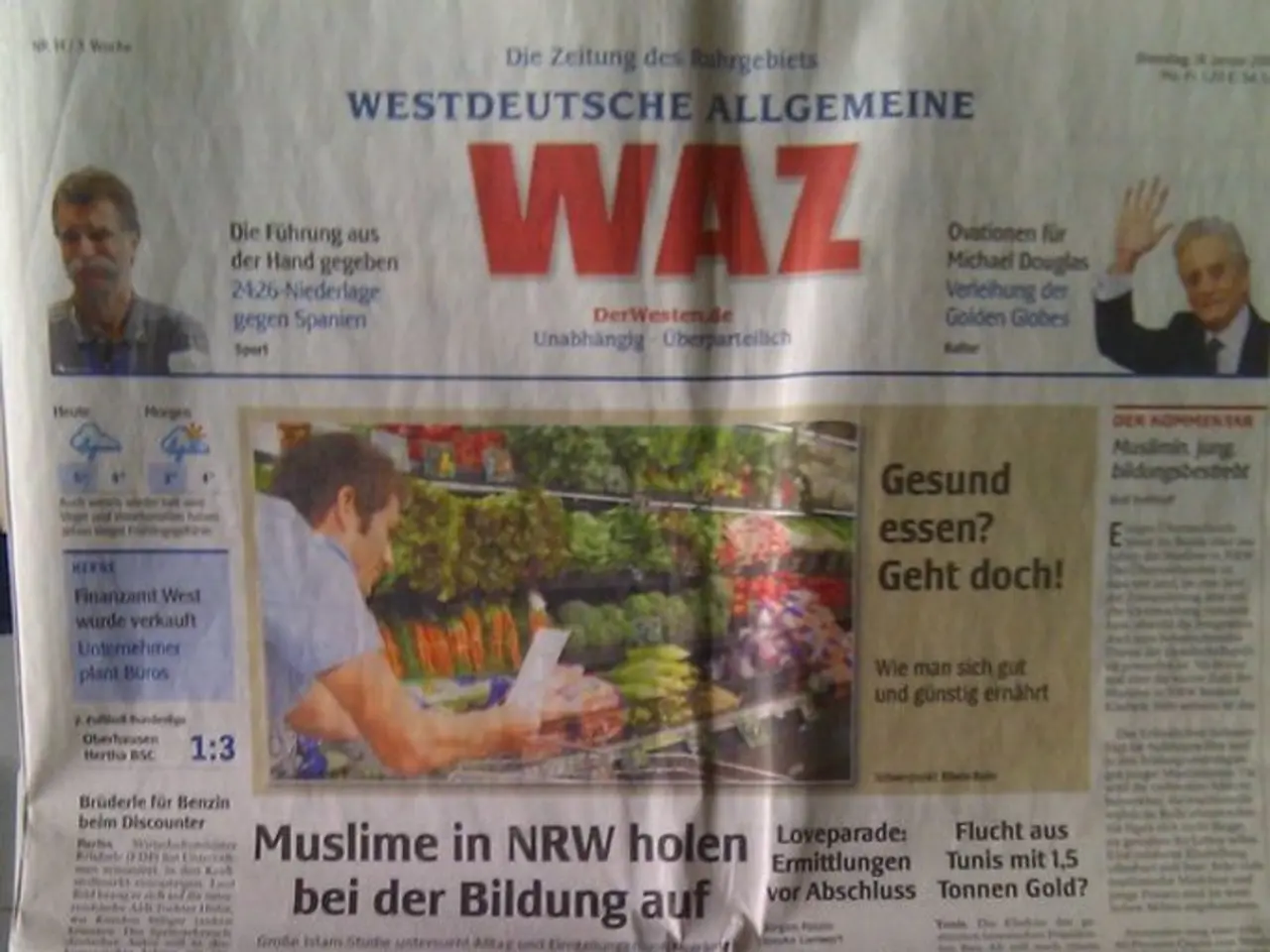Middle East peace and security could be attained via Merz's brokered two-state solution - European Union adheres to the enforcement of the United Nations Charter.
Germany Pushes for Two-State Solution and Humanitarian Aid in Middle East Crisis
The German government is taking a firm stance in the ongoing conflict between Israelis and Palestinians, advocating for a negotiated two-state solution as the key to lasting peace and security. Chancellor Friedrich Merz, aligned with this position, is actively engaging in diplomatic efforts and coordinating humanitarian aid to address the crisis in Gaza.
In a bid to alleviate the humanitarian crisis in Gaza, Merz is leading an immediate aid airlift in partnership with Jordan, France, and Britain. The German government reserves the right to increase pressure on Israel, including potential measures like halting arms deliveries or suspending the EU Association Agreement with Israel, although no decisions have been finalized yet.
Merz has emphasized the need for a ceasefire in the Gaza Strip and called for the disarmament of Hamas. He specifically praised the central role of Jordan in addressing the crisis, announcing the establishment of an air bridge for humanitarian aid supplies together with Jordan on Monday.
Regarding Israel, Merz supports Israel’s security and right to exist while condemning Hamas terrorism. He has urged Israeli leadership to allow humanitarian aid and improve the humanitarian situation in the Gaza Strip. Israel introduced daily ceasefires and secure routes for the distribution of food by the UN and other organizations over the weekend, following massive international criticism. Hundreds of trucks with aid supplies have already arrived since the implementation of the ceasefires.
Merz opposes further expulsions and annexation of the West Bank by Jewish settlers. He has also expressed concern about the “catastrophic situation” in Gaza and indicated that Germany will continue to focus on negotiation and reconstruction efforts in Gaza following hostilities, promoting humanitarian assistance as part of longer-term peacebuilding.
At the international level, German officials, including Minister Florian Hahn, have reiterated support at the UN for a two-state solution while calling for an immediate ceasefire and warning Israel against measures undermining peace such as illegal settlements and starvation tactics.
King Abdullah of Jordan thanked Germany for the support and called for a political horizon for a just and comprehensive peace based on the two-state solution. The role of Jordan in the region remains significant, with Germany actively cooperating with Jordan to provide humanitarian airlifts to Gaza.
The German government does not plan to recognize a Palestinian state in the short term. However, Merz believes the two-state solution is the best chance for peace and security in the Middle East, with a viable political perspective for the Gaza Strip necessary for a lasting ceasefire and peace.
As the crisis continues, Germany remains committed to finding a peaceful solution, balancing Israel’s security needs, Palestinian humanitarian concerns, and regional cooperation involving Jordan, with a clear long-term focus on a two-state negotiated solution.
Policy discussions on the Middle East crisis, involving the German government, have centered around the advocacy of a two-state solution to bring about lasting peace and security, and in line with this, politics relating to humanitarian aid are being considered to alleviate the crisis in Gaza.
In the realm of policy-and-legislation, Germany is emphasizing the need for a ceasefire in the Gaza Strip, and calling for disarmament of war-and-conflicts-related groups like Hamas, in addition to providing humanitarian aid.







